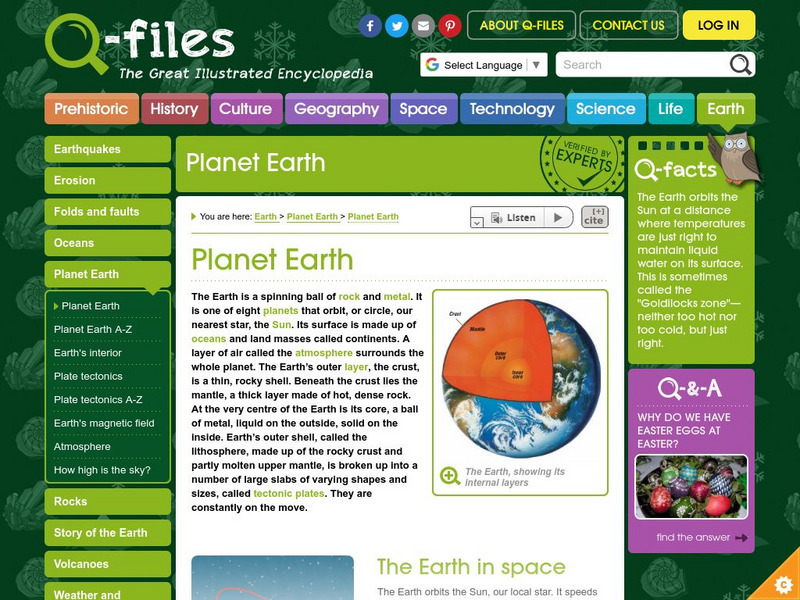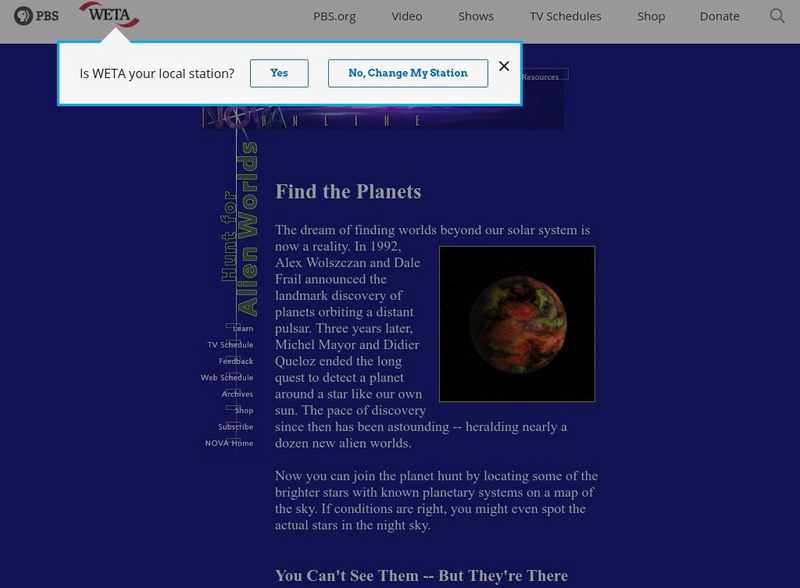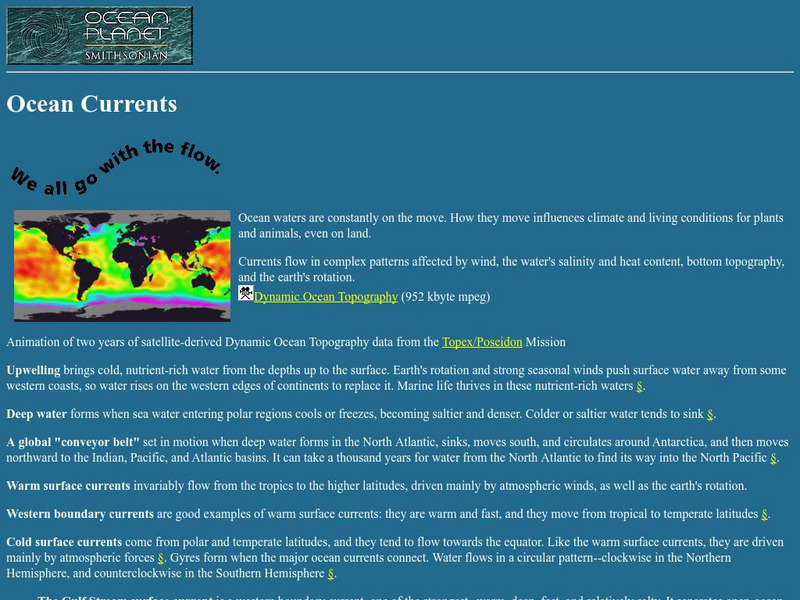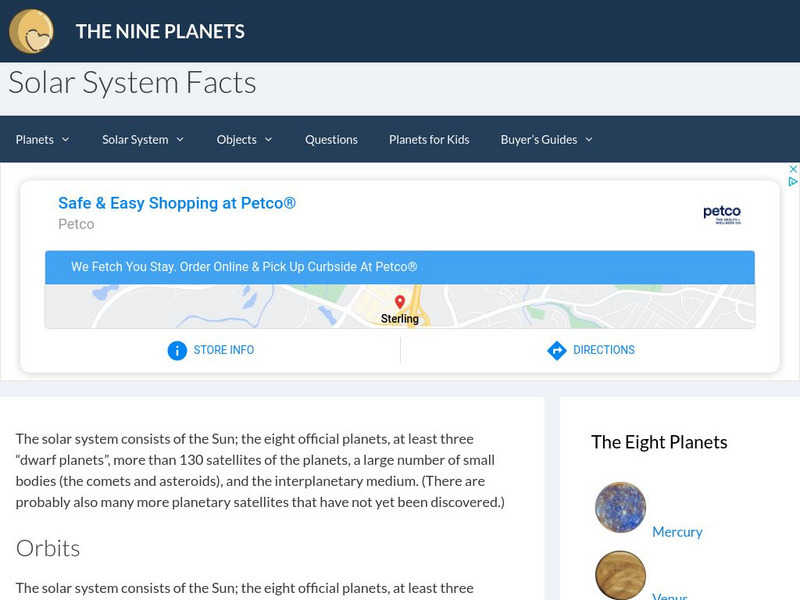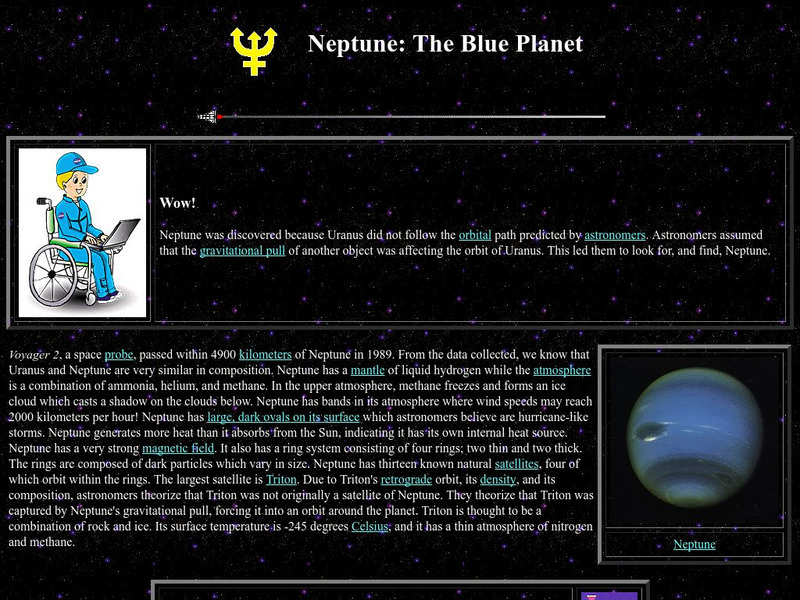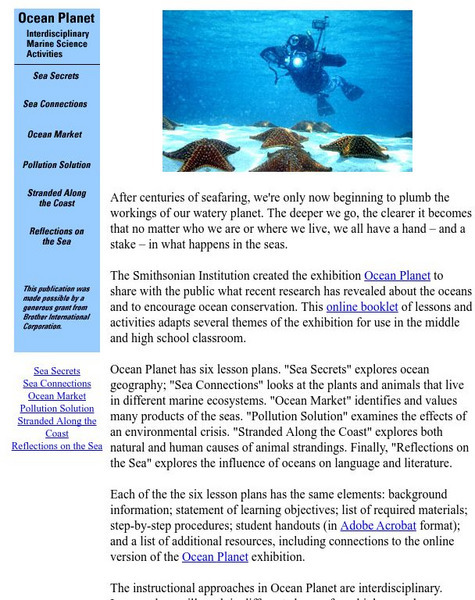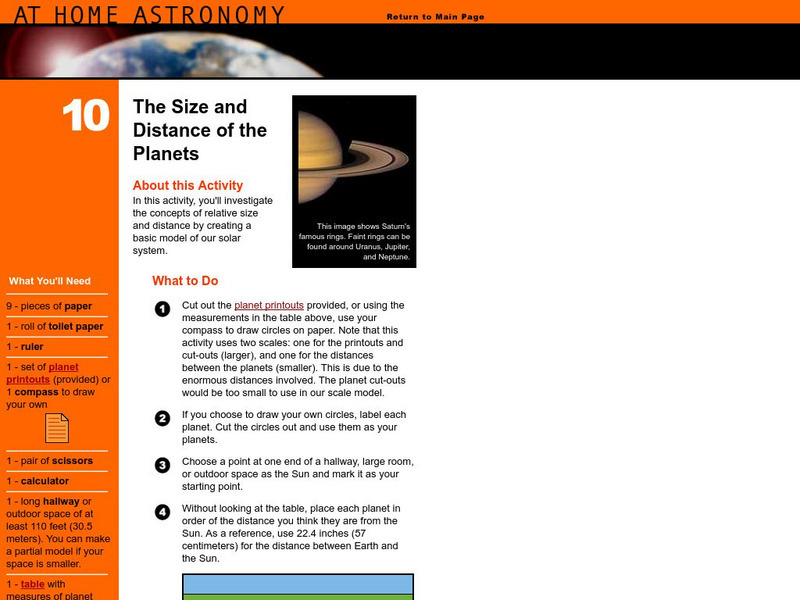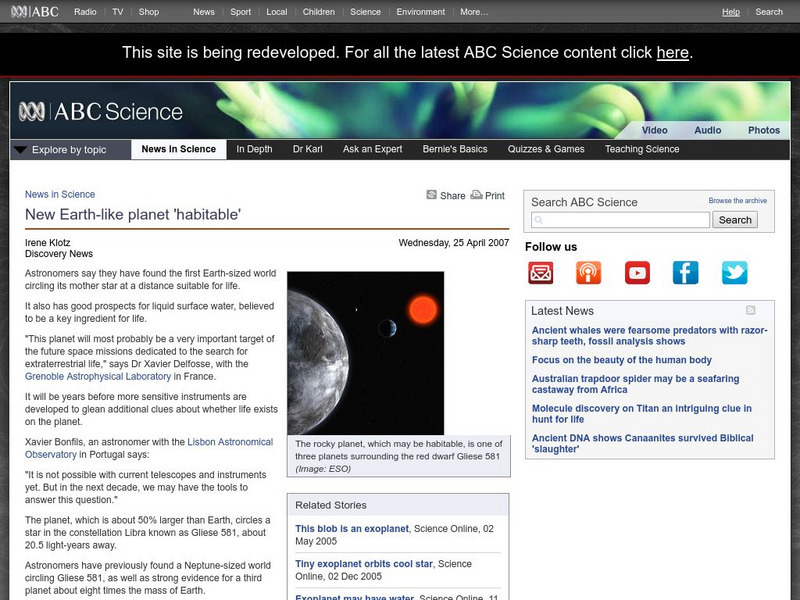Other
Space Science Institute: Alien Earths: Star and Planet Formation
Learn about the lives of stars, and how stars and planets form. The Interactive activity, 'Planet Families' requires Adobe Flash and cannot be launched.
Smithsonian Institution
National Air and Space Museum: Exploring the Planets: Tools of Exploration
Part of the National Air and Space Museum's online exhibition about Exploring Planets, this describes and gives visuals of telescopes, probes and fly-by aircrafts, orbiters, and landers as current methods for earth and airborne...
Smithsonian Institution
National Air and Space Museum: Exploring the Planets: Mercury
This is a useful resource for facts and images pertaining to the planet Mercury.
Orpheus Books
Q Files: Planet Earth: Planet Earth
Earth's features and facts are discovered and explained in this brief entry. Identify what makes this planet special.
PBS
Pbs: Find the Planets
Find out how astronomers locate new planets by observing the traits of the stars they orbit. Get some tips at locating stars with the help of star maps.
National Geographic
National Geographic: Educator Resources: Extreme Weather on Other Planets
Find lesson plans, worksheets, photo galleries, and related links for teaching about the weather systems of planets in our solar system.
Smithsonian Institution
National Museum of Natural History: Ocean Planet: Ocean Currents
The Ocean Planet exhibit at the Smithsonian explains the general features of ocean circulation. A general look at upwelling, deep water, and currents are combined for an overall view.
Lonely Planet
Lonely Planet: Cyprus
This Lonely Planet site offers a down-to-earth summary of the culture of Cyprus. Read about ancient relics, religion, and food.
Nine Planets
The Nine Planets: Mercury
A review of information about the planet Mercury, complete with images and explanations.
Nine Planets
The Eight Planets: The Sun Solar Wind
This Eight Planets site briefly describes solar wind, a low density stream of charged particles emitted by the Sun. It also provides the basics on the sun's composition and additional sun links.
Utah Education Network
Uen: Themepark: Home/habitat: Planet Earth
Find a large collection of internet resources organized around our home planet, Earth. Links to places to go, people to see, things to do, teacher resources, and bibliographies.
Smithsonian Institution
National Air and Space Museum: Exploring the Planets: Ancient Times & the Greeks
In ancient times only five planets were known: Mercury, Venus, Mars, Jupiter, and Saturn. Learn about Greek astronomer Ptolemy's theory for the solar system that was to survive for fourteen centuries.
TeachEngineering
Teach Engineering: The Amazing Red Planet
The purpose of this lesson is to introduce learners to the planet Mars. This lesson will begin by discussing the location and size of Mars relative to Earth, as well as introduce many interesting facts about this red planet. Next, the...
TED Talks
Ted: Ted Ed: Nasa & Trappist 1: A Treasure Trove of Planets Found
Seven Earth-sized planets have been observed by NASA's Spitzer Space Telescope around a tiny, nearby, ultra-cool dwarf star called TRAPPIST-1. Three of these planets are firmly in the habitable zone. In this video, NASA Scientists...
Nine Planets
The Nine Planets: An Overview of the Solar System
A detailed overview of the history, mythology, and current scientific knowledge of each of the planets and moons in the solar system.
NASA
Nasa Star Child: The Blue Planet (Level 2)
A good general introduction to planet Neptune for students. Has many links to more detailed information about the planet throughout the page, as well as special links for interesting facts. Also features a printable version of the page.
Smithsonian Institution
Smithsonian Education: Ocean Planet
A series of lesson plans designed to be used with the Smithsonian Ocean Planet exhibit (available online). Lesson topics include marine ecosystems, pollution of ocean water, animal strandings, and literature.
University of California
Uc Berkeley: At Home Astronomy: The Size and Distance of Planets
In this activity, "You will investigate the concepts of relative size and distance by creating a basic model of our solar system." Planet printouts are provided and this site contains related links.
Australian Broadcasting Corporation
Australian Broadcasting Corporation: News in Science: New Earth Like Planet 'Habitable'
From ABC News in Science, Irene Klotz's article discusses the findings of researchers and scientists related to the discovery of an "Earth-like planet" which is capable of supporting life.
NASA
Nasa: Finding the Distances Between Planets
NASA site features a lesson plan that teachers can use to help their students see how far they are from each of the planets.
TeachEngineering
Teach Engineering: The Outer Planets
Students explore the outermost planets of our solar system: Saturn, Uranus and Neptune. They also learn about characteristics of Pluto and its interactions with Neptune. Students learn a little about the history of space travel as well...
PBS
Pbs Learning Media: Scaled Images of the Solar System
Use the following lithographs to envision the scale of our solar system. View different models of planets at different scales, an infographic about the relative sizes of the planets and distance from the sun, and images of the largest...
Smithsonian Institution
National Air and Space Museum: Exploring the Planets: Venus
Get the facts on Venus. Resource offers a variety of satellite images and facts about the structure and features of Venus.
PBS
Pbs Learning Media: Pre K 12 Resources for New School Routines: Protecting Our Planet Bingo: Pre K and K
These weekly activities are cross-curricular but emphasize Social-Emotional Learning, Math, and Literacy development. This week children will learn that they can make choices that can reduce their impacts on the land, water, air, and...



